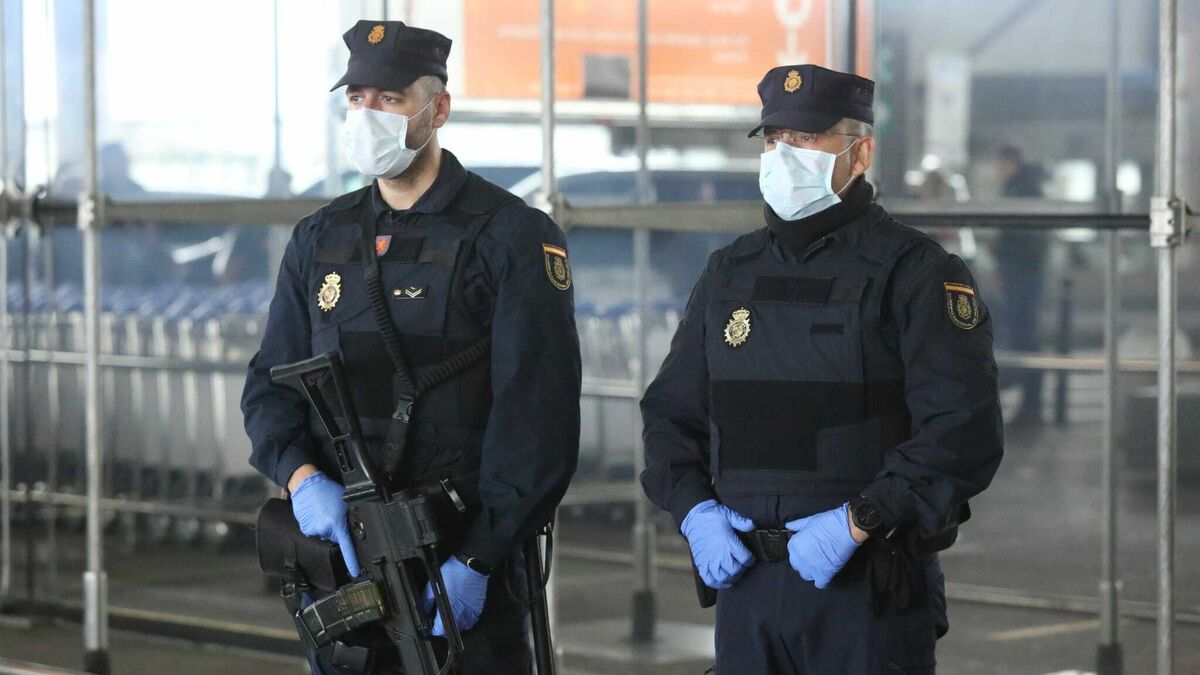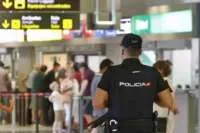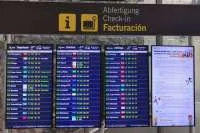Spain extends border closures for non-EU nationals until May 31st
- 30-04-2021
- National
- Canarian Weekly
The Spanish government has extended the temporary restriction of non-essential trips from third countries to the European Union and European Schengen area, due to the ongoing Covid-19 situation, until May 31st 2021.
Confirmation of this decision has been published today, Friday, in the Boletin Oficial de España (BOE: 103/7051).
This order from the Ministry del Interior responds to the recommendation of the European Council of June 30th 2020 recommending the temporary restriction of this type of travel by air to the EU and the possible lifting of said limitations.
Specifically, as of May 1st, travellers from India, Brazil, South Africa, Botswana, Comoros, Ghana, Kenya, Mozambique, Tanzania, Zambia, Zimbabwe, Peru and Colombia, with or without stopovers, will only be able to enter Spain if they are residents of Spain or Andorra.
Spanish citizens, and their spouse or partner with whom they maintain a union analogous to the conjugal which is registered in a public registry, and those ascendants and descendants who live in their care, may also do so, provided they travel with or to meet with the latter.
They may also enter if they are marine and aeronautical transport personnel to carry out designated activities; diplomatic, consular, international organizations, military, civil protection and humanitarian organizations, in the exercise of their functions, or those who prove reasons of force majeure.
Entry restrictions by air, for passengers from countries outside of the EU and the Schengen area, have been extended and adapted to the evolution of the pandemic in different countries.
The last extension, which came into effect on March 26th, ended today, April 30th. With the publication in the BOE of the new regulations, the temporary restriction of non-essential travel by air from third countries to the EU, and associated with Schengen, is extended until May 31st (26 countries, of which 22 are Member States of the European Union).
UK nationals:
The United Kingdom finally left the European Union at the end of December 2020 and its citizens are now third country nationals, so the same rules apply to them as to other non-EU members.
At the moment planning for the summer months is hinging on the decision of the British Government about when it will permit British nationals to resume holiday activity. At the moment this may be from May 17th onwards, or even in June, although the UK Government has not yet made a commitment to any clear dates.
Entry restrictions and testing requirements continue to apply for travel to Spain. Only citizens and legal residents of the European Union, Schengen states, Andorra, Monaco, The Vatican, and San Marino, and those who can demonstrate through documentary evidence an essential need to enter Spain, will be granted passage under current travel restrictions.
Be aware that Spanish border authorities reserve the right to deny passage and will only grant entry if they are satisfied that you are returning to your habitual place of residence or that your journey to Spain is for one of the permitted circumstances outlined below.
Those individuals who are permitted entry into Spain from the UK are listed below:
- Habitual residents of the European Union, Schengen States, Andorra, Monaco, The Vatican or San Marino; who are travelling to their country of residence and can duly accredit their residence status with documentary evidence. For further information on documents accepted as proof of residence in Spain.
- Holders of a long-stay visa issued by a Member State or Schengen Associated State, who are travelling onto said country.
- Health professionals, including health researchers, and elderly care professionals who are going to or returning from essential work.
- Transport personnel, seafarers and aeronautical personnel.
- Diplomatic, consular, international organizations, military, civil protection and members of humanitarian organizations.
- Students enrolled in courses starting after 1st January 2021 who carry out their studies in an EU Member or Schengen state and who have the corresponding permit or visa and medical insurance.
- Highly skilled essential workers whose work cannot be postponed or carried out remotely, including participants in high-level sports events due to take place in Spain
- People travelling for imperative family reasons who can demonstrate an essential need to travel. For this category, you should check with the Spanish consulate in the UK for further advice before travelling.
All of the circumstances above must be justified by documentary evidence. You should check with the Spanish consulate in the UK if you are unsure whether your circumstances meet the current exemptions and for further information. You should be aware that you may be questioned on arrival by Spanish border authorities to ensure you meet the entry requirements, and testing requirements continue to apply for travel to Spain.


























































